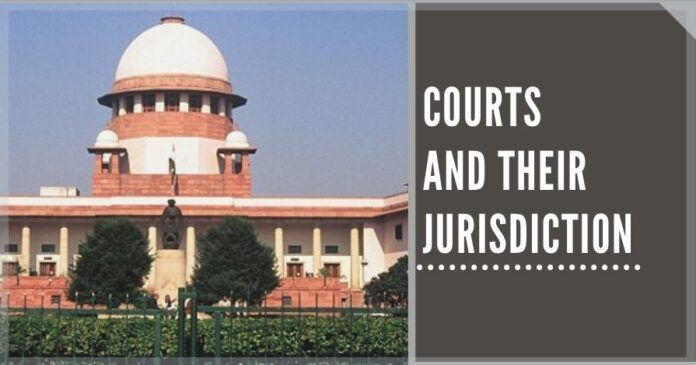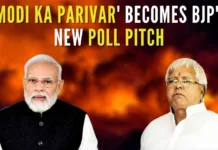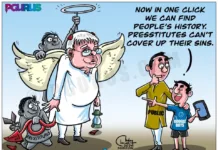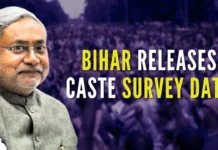
There is the question of how far should and can the courts go in adjudicating on cases that have the potential to blur the lines laid down in the Constitution for the Executive, the judiciary and the legislatures.
Over the decades, the Supreme Court has been expanding its writ on a variety of decisions of the Executive as well as the Parliament. In recent years, it invalidated an Act that Parliament had passed on the creation of a judicial appointments commission. It has also over the years added to the corpus of fundamental rights as enshrined in the Constitution of India, bringing in its ambit several subjects. More recently, it stopped short of declaring access to the Internet a fundamental right. And now, it has entered a fresh arena: That of determining the timeframe for the presiding officers of Parliament or Legislatures to decide on disqualification petitions.
Setting a deadline for these tribunals to dispose of disqualification cases may not be workable, given that several legal issues can crop up to delay a verdict.
Hearing a case, a three-judge bench headed by Justice RF Nariman, directed that the Speaker must decide on disqualification pleas within three months of such petitions being filed. The unprecedented order came, no doubt, in the backdrop of cases where Speakers have dragged their feet on such matters; in a few instances, decisions came after the Assembly session expired and a new one came in place, thus making the disqualification only a matter of record and virtually letting the erring legislators off the hook. However, setting a time-limit has its own problems. For instance, the apex court to is known to have taken its time in deciding important cases, either giving endless dates or reserving verdicts for months. How would it react to the government asking the courts to give decisions in a time-bound manner, and setting a time period?
The Supreme Court also suggested that Parliament should “rethink” on the powers that the Speaker has to disqualify members, given that the Speaker owed allegiance to one party or the other. It said that Parliament should consider establishing a permanent tribunal headed by a retired judge of the apex court or a retired Chief Justice of a High Court — or a similar mechanism — to decide on disqualifications. The problem that could emerge if this suggestion is adopted could be one that ails tribunals in the country. Many of them have been unable to resolve issues in any time-bound fashion. One may take the various river water dispute tribunals that function in the country. Again, setting a deadline for these tribunals to dispose of disqualification cases may not be workable, given that several legal issues can crop up to delay a verdict.
It is true that Speakers are known to have been influenced by the political situation at hand and the fact that they belong to a particular party has in nuanced methods come in the way of disposition of petitions of disqualification. Nonetheless, questioning across the board their integrity may not be the correct way to proceed.
The top court made its observations and gave a time-frame while hearing the appeal of Congress leader Keisha Meghachandra Singh against a Manipur High Court order. The High Court had refused to direct the Manipur Assembly Speaker to decide on an appeal for the disqualification of another member Shyamkumar. It did so on the ground that a similar issue (whether a Speaker can be directed in such matters by the courts) was pending decision before a five-judge Bench of the Supreme Court. The High Court said: “It is not possible to accede to the argument…that the disqualification petition be decided by this court in these appeals, given the inaction of the Speaker.”
The committee had been set up by then Minister for Railways Lalu Prasad Yadav, and it concluded that the fire had been an accident and not “caused by the use of any inflammable material”.
In other similar instances in the past, the apex court had walked a tight rope. For example, in the recent Karnataka case, the court had last year regretted the role played by Speakers who are supposed to be independent (but often are not), and yet it did not issue any directives to the Speaker. It had observed: “There is a growing trend of Speakers acting against the constitutional duty of being neutral.” It appears that the apex court has taken off from the Karnataka case to intervene in the powers of the Speaker to determine disqualifications cases within a fixed time-frame.
There is a presumption in the apex court’s suggestion of a tribunal to decide on disqualification pleas, which is that a tribunal would be impartial — besides being prompt in delivering its verdict. Some tribunals and independent commissions in the past have not exactly covered themselves with glory. Let’s take just two instances. The Ranganath Misra Commission had been established to inquire into the Sikh massacre of 1984. Shockingly, it found no one guilty. Incidentally, after completing his tenure, Justice Misra became a Congress member of Parliament. The second example is that of the UC Banerjee panel that was set up to inquire into the Godhra train fire incident, which claimed the lives of nearly 60 people. The committee had been set up by then Minister for Railways Lalu Prasad Yadav, and it concluded that the fire had been an accident and not “caused by the use of any inflammable material”. The panel was deemed as illegal by law, by the Gujarat High Court.
Finally, there is the question of how far should and can the courts go in adjudicating on cases that have the potential to blur the lines laid down in the Constitution for the Executive, the judiciary and the legislatures. In the recent past, the apex court itself had remarked while hearing a case that “the judiciary must be on guard against encroaching beyond its bounds since the only restraint upon it is the self-imposed discipline of self-restraint”.
Note:
1. The views expressed here are those of the author and do not necessarily represent or reflect the views of PGurus.











More than anything else in this country, the trends of behaviour in judiciary including its highest level, abuse of many well meaning constitutional niceties to subvert justice with covert complicity of the judicial system, practice of earning “justice”through gratifications of various kinds and politically dispensed parochially prejudiced over-reaches as well as under-ducks (bails etc) in the judicial system are all portending to be the pinnacle of real danger to the nation.
With respect to Tanjore temple kumbabisekham controversy…
Organise a protest against all churches n christian educational institutions…ask them to demolish churches
…..
Jesus was not born here in India n he doesn’t know Tamil…
Can we shut down all churches n christian missionaries named schools….or can we rename all christian institutions with Tamil poets name ???
Start a protest against all christian named institutions… They don’t carry Tamil names…. Nor have they contributed to India or Tamil language…why should we have their names in tamilnadu…paul, peter, Xavier..
I believe that MODI govt needs a Good Lawyer as Minister of Law and Justice to carry on the govt legal works.Ravi Shankar Prasad has failed as same. My suggestion is that Harish salve if agree can be appointed as Minister of Law and Justice.
MY hope that MODI will take action in my suggestion
I believe that MODI govt needs a Good Lawyer as Minister of Law and Justice to carry on the govt legal works.Ravi Shankar Prasad has failed as same. My suggestion is that Harish salve if agree can be appointed as Minister of Law and Justice.
In Congress Regime Judiciary and courts were under its limits.But after Modi came to power the Judiciary expanded its powers by encroachment of powers delegated by Constitution and encroached most of powers.When it cancelled NJAC act passed by both houses of and accented by President albeit it has no powers but the Judges showed that they can rule India by Proxy.When Elected are side tracked and put under submission by Judicial threats and elected one surrendered their powers to unelected authorities such things occurs.After 2014 Judiciary played to whims and fancies of opposition parties against duly elected Govt who wanted to implement many social service agenda.Eminent Jurist Harish Salve warned Modi Govt in 2014 that Some most powerful Lawyers cum Politicians may suppress Judiciary by threats and obstructions and hold the courts to ransom.That happened when a group of Congress lawyers cum MP’s used Impeachment motion weapon to subjugate the then CJI Deepak Mishra although RS chairman rejected that motion.But it put a black spot on Judiciary0 and make it vulnerable.Same gangsters used some Judges to openly revolt against CJI by calling a Press meet.Never such things happened.Justice Mishra Justice Gogoi faced many such devastation created by Congress lawyers for personal gains and aggrandizement.Justice Gogoi was alleged to have some sexual predator allegations which proved to be false.But Now the same informant is re-instated in her post.In fact PIL are filed by paid lawyers.NO country endears these.PIL should be logical and purely Public interest based not for personal gains.Courts must impose penalty on predators PIL filers..